Rising up around the Retiro railway station that dates back to Argentina’s gilded age, the Buenos Aires settlement of Villa 31 is a world within a world; a kaleidoscope of brightly colored dwellings, stacked up to the sky, under a tangled net of wires and teetering staircases.
This is the most emblematic of Argentina’s impoverished barrios, where more than 40,000 people stitch together a day-to-day existence. Lately, it’s found itself on another frontline, battling the novel coronavirus as it rips through the barrio's dusty lanes and around its hidden corners.
The pandemic is wreaking havoc in Latin America, considered the epicenter of COVID-19 since late May. The region has more than 3.7 million reported cases. There are now more than 160,000 fatalities across Latin America and the Caribbean. About half are in Brazil, the second highest tally after the United States.
In neighboring Argentina, population 45 million, a strict quarantine kept numbers low early on. But as restrictions lifted, infections spiked. Reported cases have eclipsed 130,000. More than 2,300 people have died. This month, authorities placed the hardest hit zones of the capital city of Buenos Aires and the densely populated ring around it back it into another hard lockdown. The cases keep climbing. Argentina was already grappling with a recession and soaring poverty before the crisis hit, and all of that is expected to get worse.
In a region as unequal as Latin America, women are in a particularly vulnerable position, the United Nations has warned. They earn less, are more likely to hold precarious jobs, and shoulder the bulk of unpaid caregiving at home. As social and economic conditions fray, women are facing more domestic violence, and it is harder for them to assert their reproductive rights. The hardship is heavier for those in marginalized groups, including Indigenous women, women of African descent, migrants, and the trans community.
Women are also on the vanguard of the battle against COVID-19. That's the case in Argentina, where they are feeding the hungry, paying house calls on the sick, toiling away in laboratories, and delivering essential health care. VICE News set out to meet a few of them, and find out more about how coronavirus is affecting their day-to-day existence -- and that of their communities.
Gabriela Ramos, soup kitchen worker
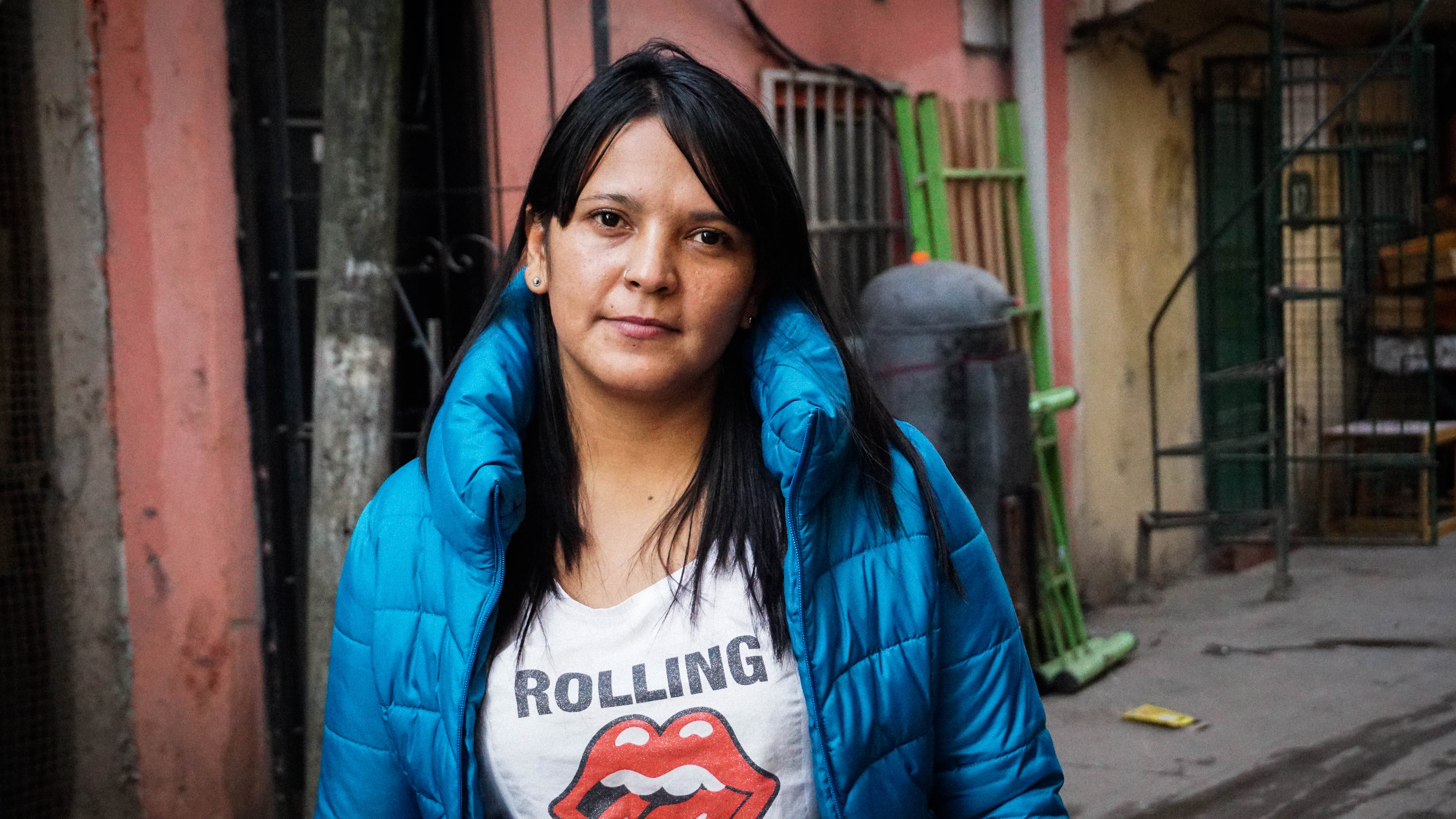
Gabriela Ramos thinks about the wounds of the pandemic and she thinks about her friend, Ramona Medina.
A staunch campaigner for community rights, Medina took to social media back in April to denounce a lack of water in her neighborhood of Villa 31. She begged city authorities for better housing conditions for her family of six, who were living in a tiny, dilapidated dwelling in the shadow of an elevated highway. Several of Medina’s family members were considered at high risk of contracting the disease — and Medina, who was diabetic, did. In May, the 42-year-old died of COVID-19, a blow that may always be difficult to put into words for people like Ramos.
“It really empowered us to keep going,” said Ramos, 29 and a mother of four.
“Nobody knew that you were seeds,” is a line that community members recite about Medina. Those seeds were evident one day in the Comedor Gustavo Cortiñas, a soup kitchen run by La Poderosa — the Powerful One — an organization that operates in slums and low income neighborhoods across Argentina, and that borrowed its name from the motorcycle that Che Guevara and his friend Alberto Granados rode across Latin America in 1952.
Ramos works here. She is also part of a group that monitors and denounces police harassment and brutality in the neighborhood. She joined La Poderosa a few years ago, and credits it with helping her flee a violent relationship. She is finishing high school and intends to study law.
The women running the soup kitchen have instituted a strict hygiene policy. They change out of their street clothes and don new masks before entering. Food is served in disposable containers and handed out through a slot in the door. The organization gets city funding, but private donations are necessary to meet demand, which has quadrupled since the pandemic started. Some 450 people line up every day to get their ration. Women who want to help, but are not able to leave their houses, pitch in by dicing vegetables at home.
“I used to be scared, but after what happened to Ramona, I’m not scared. If I’m going to get infected, well, I’m going to get infected. But what we’re living through in the barrio, I feel like, they’re killing us,” said Ramos. “Because if we’re not feeding these people, they’re going to die of hunger.”
The water is back on now in Villa 31. Medina’s old home has been boarded up, and her family relocated to interim housing until they are given a new unit that is part of a city revitalization plan. Authorities also ramped up testing and isolation of infected residents in the barrio; the number of new cases has dropped off significantly. But sectors still suffer from blackouts, said Ramos. And other needs are not being met.
“Why did it take the death of Ramona for people to be relocated? Why did it take her death for water to reach some of these houses? Why?” asked Ramos. “You’re never going to find the answer.”
Mariana Viegas, scientist
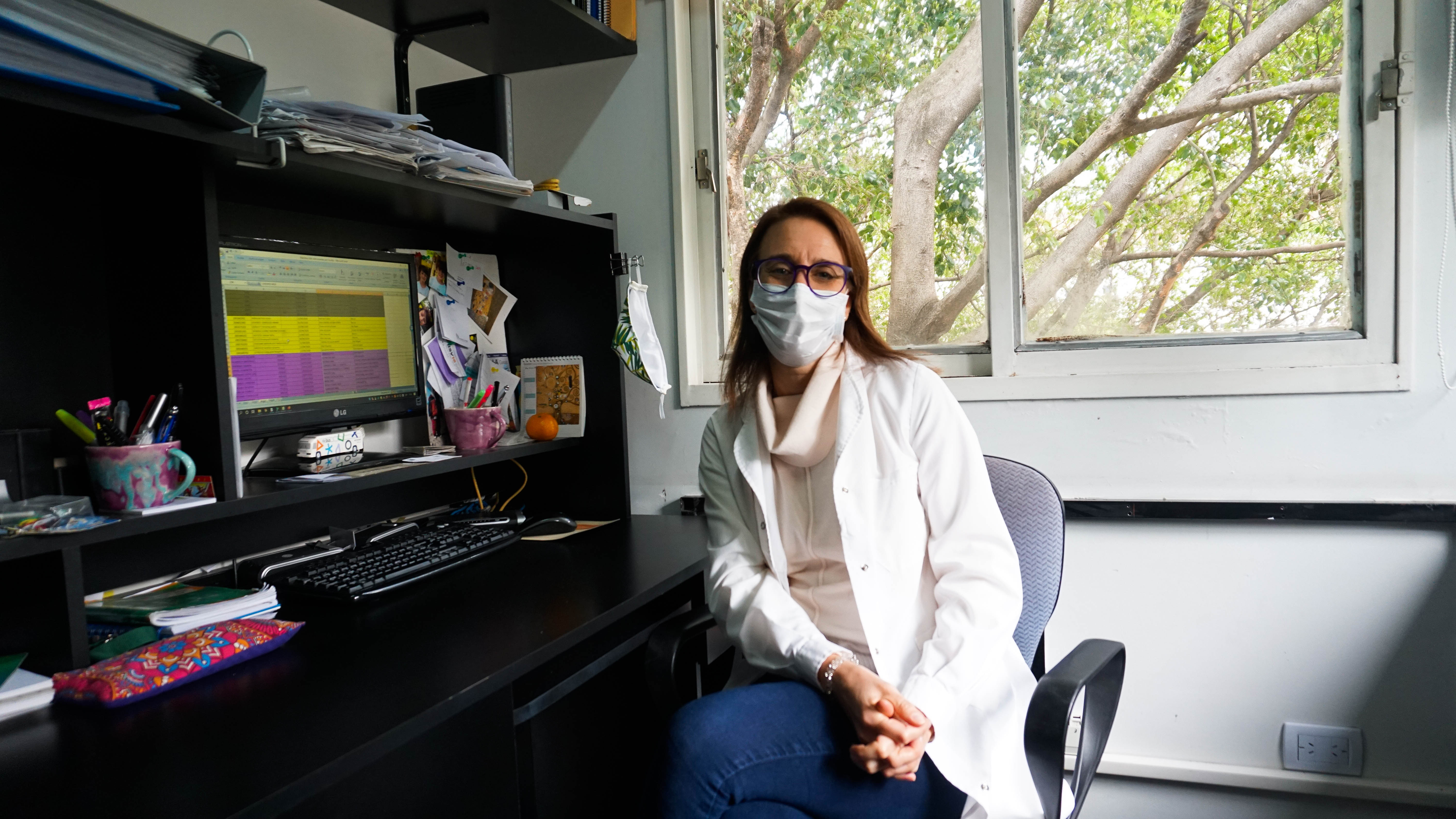
Mariana Viegas lives and breathes respiratory illnesses.
When word began to spread in January about a novel coronavirus detected in China, the biochemist and virologist turned to her team at the Hospital de Niños Dr. Ricardo Gutiérrez in Buenos Aires.
“I said, this is going to disperse throughout the whole planet and we have to be prepared,” said Viegas. “If the virus arrives in Argentina, how are we going to characterize it?”
The team of six women scientists chose a strategy to sequence the genome of the virus and obtain vital information that could help in the development of a vaccine, and drugs to combat it. “We all put on our lab jackets, our hands on the pipettes and we got down to work until we found those first sequences,” said Viegas.
And they did — in April, the team succeeded in sequencing the genome of coronavirus strains from 26 patients in the Buenos Aires area. The selected samples fell into three categories: Argentine travelers who had “imported” the virus from another part of the world; people who had been in close contact with travelers who had contracted the virus overseas; and people who had no apparent connection to someone with the virus.
“We didn’t find one virus that was exactly the same in everyone. We found a virus with different genetic characteristics. A virus with tiny changes among each one,” said Viegas.
“That is good. It’s important because knowing that this virus, despite its high transmissibility and the way it is spreading around the world, is not so varied, means that once we have a vaccine, that vaccine will probably be effective against all the viruses that are circulating around the world,” she added.
The team’s work is part of a global effort to gather as much data as possible about COVID-19. Their findings are shared on a public, international database. Viegas is also heading up a national effort to sequence the genomes of 1,000 coronavirus patients from across Argentina.
It has been an invigorating time for the scientists who make up Viegas’ team (it is a coincidence that they are all women). Viegas is also a university instructor and recalls delivering lectures on pandemics, never imagining that the theoretical would jump off the page.
“When your speciality is respiratory viruses, and all of a sudden this thing emerges, and it starts to spread in this way, and the very thing that you do can actually help to fight it — it’s amazing,” said Viegas.
“Even though it’s terrible what is happening to humanity, because it really is terrible, I see it from the positive side of my passion.”
Sandra Vázquez, abortion provider
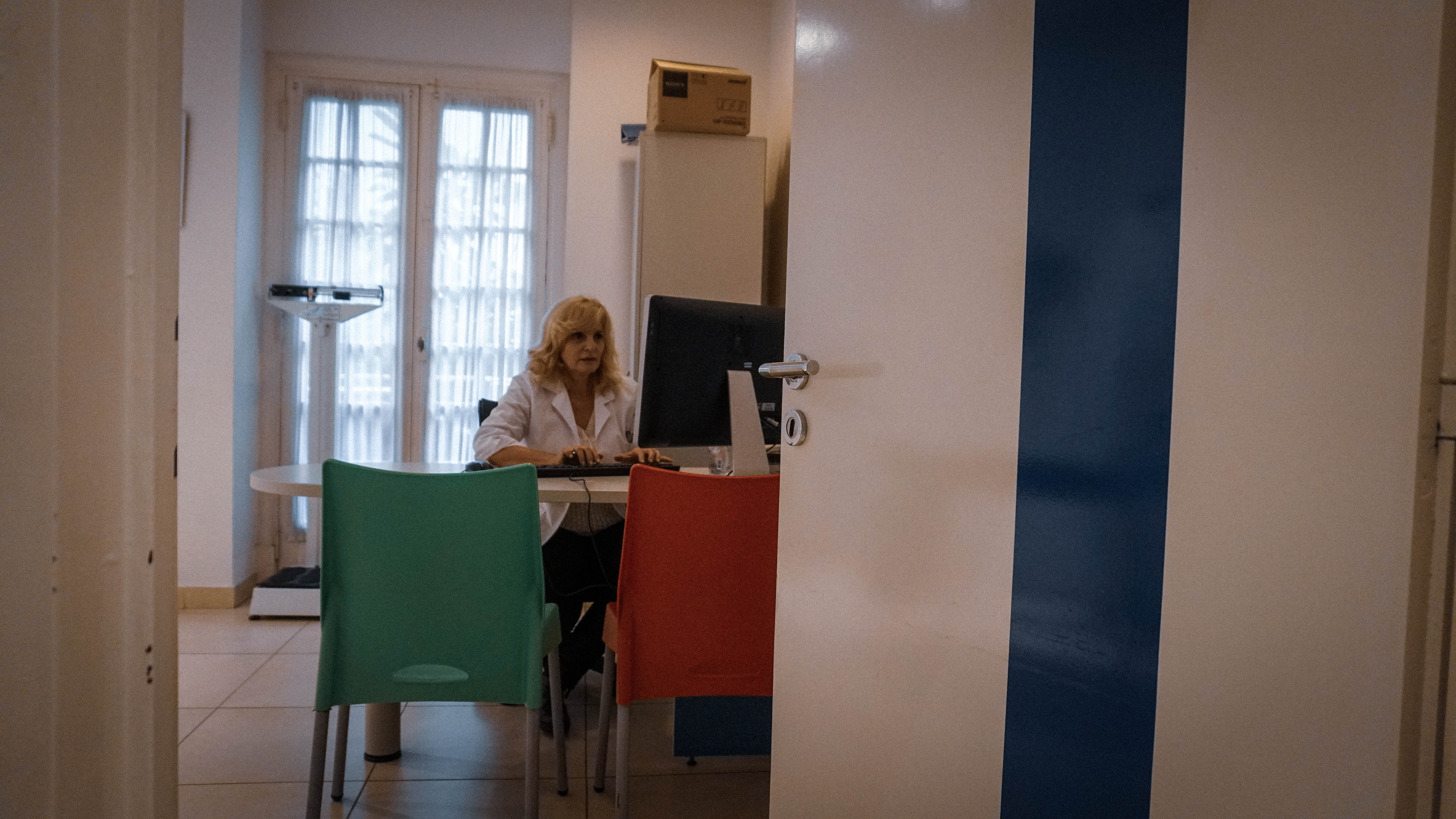
In a bathroom with the shower on. Alone in a car. On the street, under the pretext of a grocery run.
In the midst of a global pandemic and stay at home orders, these are the places where Argentine women have found privacy in order to inquire about having an abortion.
The mandatory lockdown that has stretched on for months has introduced new difficulties for access to a service that is already highly contentious.
Abortion remains illegal in Argentina, except in instances of rape or if a mother’s life or health is at risk.
Casa Fusa, a non-profit health center that provides a range of services including legal abortions in the capital city of Buenos Aires, has seen a 30 to 40% decline in the number of patients during the pandemic. Women are arriving with their pregnancies more advanced, said Dr. Sandra Vázquez, the facility’s executive director, which she attributes in part to fear of contracting the disease.
The pattern goes beyond abortion.
“There are many more deaths from other ailments. People with chronic conditions that are not getting treatment. So, you can imagine a woman who is looking for anti-contraceptive pills,” said Vázquez. “They are women who are going to get pregnant. They may try to access an unsafe abortion in their homes, and this worries us.”
Her health center has instituted a novel approach to ease access: a delivery service for misoprostol, the drug administered here for medical abortions. Following a consultation session via video chat, the drug and instructions are delivered by motorcycle. A patient signs a consent form, which is then returned to Casa Fusa by motorcycle.
At Casa Fusa, virtually any situation can fall under the legal requirements to permit an abortion — jeopardizing a woman’s health need not be physical, but can be mental or social, said Dr. Vázquez. That follows the requirements set out by the Argentine Ministry of Health, which uses the World Health Organization’s definition of health. But not all provinces have adopted that protocol, and women encounter hurdles when seeking the procedure. The government estimates that between 370,000 and 522,000 abortions occur every year in Argentina, the vast majority clandestine.
Legal abortions are considered essential services during the pandemic by the national government, which issued a guide on how to perform a medical abortion at home. But Vázquez said the reality is different on the ground. “In the provinces where it was always harder to access an abortion, COVID is the perfect excuse to not provide abortions,” said Vázquez.
And though Casa Fusa has adapted to the new times, something is lost.
“Before, the patients would be in front of us, we would hold their hands. The woman would cry. She would laugh. You could show her that you understood what she was going through,” recalled Vázquez. “Now it is something entirely different.”
Stella Maris Morales, Indigenous leader
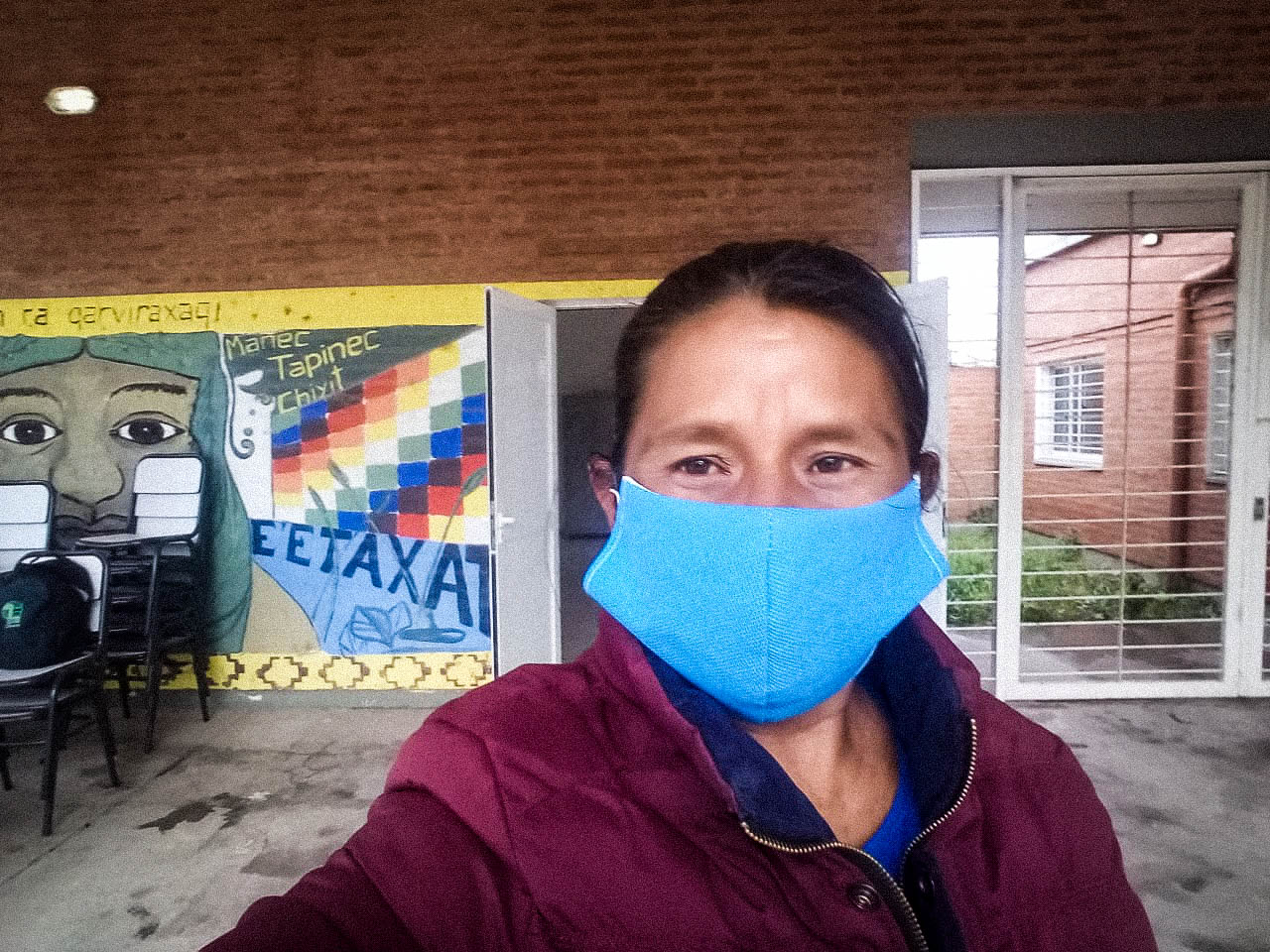
Stella Maris Morales is a community organizer and an artisan by trade, who lives in the northern reaches of Argentina, on the edge of the sprawling forested region called the Gran Chaco.
She makes the n´vique, a bow string instrument made out of a tin canister that is played by her people, the Qom, one of the largest Indigenous communities here.
But in the crush of a pandemic, Morales’ focus has shifted to one that takes her door to door, helping doctors perform health checks as they work to contain an outbreak of COVID-19.
With a population of just over 1 million, the province of Chaco has recorded the third highest number of infections in Argentina, more than 2,600 cases, after the much more densely populated capital city of Buenos Aires and the province of Buenos Aires. Morales, 44, lives in Gran Toba, a community of about 4,800 people on the outskirts of Resistencia, the provincial capital.
The vast majority of people in Gran Toba live day to day, most as artisans, and the pandemic has added a new layer of uncertainty to their survival. Morales estimated that 80 percent of her neighborhood is now unemployed.
During the pandemic, Morales and a handful of other volunteers have acted as guides for doctors who are not familiar with the community. In some cases, they are translators for individuals who don’t understand Spanish and speak in their Indigenous language.
“When the infections started we suffered a lot of discrimination, threats,” she said. “People would say that we were Indians, that we didn’t stay in our houses. That it was our fault that the pandemic kept advancing. That’s what they would say. They would threaten that they should set us on fire.”
In May, a video of police officers raiding the home of a Qom family near Resistencia and brutally beating its members went viral in Argentina, prompting widespread condemnation all the way up to the country’s president. Four officers now face criminal charges.
“You can’t leave the neighborhood because they look at you with a face. And we see and feel that,” said Morales, who has spent decades demanding that the government provide work training opportunities, especially for young people.
Provincial and national authorities stepped up efforts to contain the virus with increased testing, disinfection, and food assistance. They have also pledged to build new housing. Morales said at least 167 COVID-19 cases were recorded in her community, and 19 deaths, including beloved Qom musician Juan Rescio. Most people have now recovered, but hunger and basic necessities remain a major problem.
“I am poor but I know how to manage day to day. I am more worried about other brothers who really don’t have anything, and the children and the elderly. I try to take them food, and some milk for the children. Many families only eat once a day,” she said. “I hope that our voices carry. That people really see what the needs are.”
Zoe López García, leader of a refuge for trans women
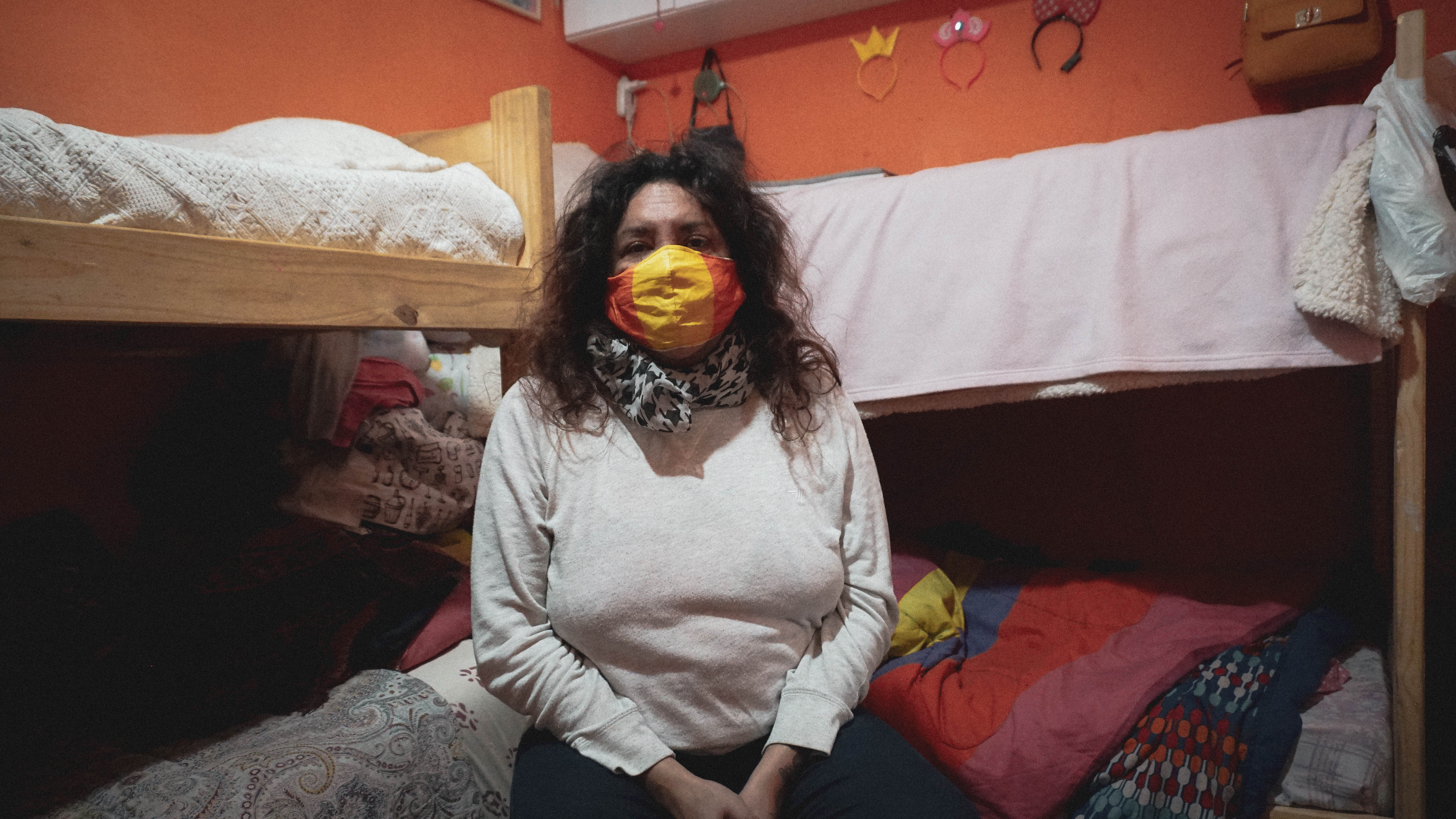
The turquoise bouffant-wearing mermaid and a train of hearts lead the way to a door that is usually open in Buenos Aires.
“The Hotel Gondolin is the cradle of trans women here,” said Zoe López García, a longtime resident and hotel leader.
The blue building with a mermaid painted on its facade has been welcoming and sheltering people since the 1990s, when trans women denounced the exorbitant rents they had to pay and eventually took over the premises. The residents often hail from the north of Argentina, where they face greater levels of persecution.
“We open our doors and we give them a bed. They land here, and then their path starts to widen,” said García, known affectionately as Aunt Zoe and the president of the association that has run the home since 1998.
Decades of activism have secured important advances for the trans community in Argentina, but it remains one of the most marginalized sectors of society. During the mandatory quarantine, they’ve faced eviction and police harassment, and have struggled to access health care and housing subsidies.
“Today, most travestis and trans people find themselves without income, and living in poverty. The situation is critical,” read a statement from the Mocha Celis, a school designed for trans people, and the Centro de Estudios Legales y Sociales, a Buenos Aires-based human rights organization. (The term travesti, considered pejorative in other parts of Latin America, has been reappropriated by the trans community in Argentina, and many people use it to identify themselves.)
The Hotel Gondolin is a refuge from the hardship. Residents don’t pay rent, and pool their money to cover taxes and food. They cook meals together and get the medical care they need. With donated sewing machines, they have been making face masks to generate extra income. Care packages are available for women who knock on their door, and they are connected with aid organizations that can provide food or other assistance.
“That way we have a chain of solidarity,” said García. “We’re always thinking of the girls who are outside, because we are well supported in here.”
Still, she said what is lacking are policies that ensure formal work.
“They never talk about sexual minorities, like trans women, in the pandemic. Many of our friends survive from sex work, and this has affected all of them a lot,” said García. “When things start to get back to normal, it’s still going to affect them.”
The emphasis at the Gondolin has always been education — and it’s something that García stresses now, that even in a “lost year” residents continue to study and equip themselves for the future.
That’s what Paloma Victoria Mamani intends to do. Originally from Bolivia, Mamani, said it was hard to adjust to the big city life three years ago. The 30-year-old turned to sex work for the first time to survive. Then Mamani got a job as a cleaner at the Mocha Celis, and has been completing her primary school education.
“I decided to stay because I feel more free here.”
from VICE https://ift.tt/3fRxLzs
via cheap web hosting
No comments:
Post a Comment